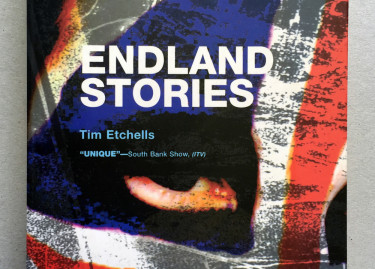Reading and really enjoying The Brief Wondrous Life of Oscar Wao, some kind of bleak and funny post-modern diaspora saga by Junot Diaz. The frame of reference (linguistic and cultural) is beautiful in its mixture; the contemporary characters caught between their (nightmarish, semi-mythical) Dominican Republic cultural heritage on the one hand and the alien wasteland of 80s New Jersey on the other. Here and there in the Spanglish (I sometimes understand by inference, or not at all) you find characters sketched by comical nods to Dune, Tolkien, Marvel Comics or even A. E. Van Vogt (whose book Slan I guess I havent seen much mention of since reading it as a teenager). The vibe is nerdy meets smart crossed with shit-talking at a party; conversational but quite happy to dip into detail on some aspect of Carribean culture and history.
In fact it’s especially the direct/bad tempered and from time-to-time abusive-staccato of the footnotes on the Dominican Republic that are super enjoyable. “You don’t know that we were occupied twice in the Twentieth Century…”, the narrator taunts explaining something at one point, only to console in the same sentence, “…don’t worry, when you have kids they wont know the U.S. occupied Iraq either“. In related spirit a general level of flashy badmouthing is meeted out to latter-day Dominican public/political figures – Tujillo is “a portly, pig-eyed sadistic mulato who bleached his own skin… our Sauron, our Arawan, our Darkseid…”, whilst Balaguer started out as “one of El Jefe [Tujillo’s] more efficient ringwraiths” but in the period of his own rule is “…a Negrophobe, an apologist for genocide, an election thief and a killer of people that wrote better than himself…”
Diaz’ own contemporary characters – a fat nerdy kid Oscar and his punk sister Lola – born to a powerhouse of negativity/Dominican-immigrant single-mother Beli, don’t always fare much better, perpetually shadowed by intimations of Fuki (a curse) and often described with perversely enjoyable skepticism and disdain. Oscar has a rough adolescence; “scrambling his face into nothing you could call cute, splotching his skin with zits.. too dorky, too shy, and (if the kids from the neighborhood are to be believed) too weird.” Another character (suitor to Beli) is framed like this; “there is something about the binding, selling and degradation of women that brought out the best in the Gangster”. Diaz can be a great enthuser too though – brash and funny – Beli, for example, gains a cleavage that is something “so beserk that only a pornographer or a comic-book artist could have designed it with a clear conscience”.
Though it’s from a very different universe both the mix of voices and the negativity thing set me thinking about my own tactics in Endland Stories and elsewhere (Lisa, protagonist in the first story of that book for example, is “an unlucky misery guts with a hidden gift for brilliant ideas”). There’s something so charged about the act of creating figures who at the same time you dismiss, threaten or paint-as-doomed. It’s a method that perhaps strikes at and immediately doubles the process of making-through-writing. It’s tense too, at least in Diaz’ book. I’m worried about Oscar, even though I guess the title has pretty well given it away.
What’s interesting for me also is reading a book like this that really does ‘generations and family history’ – small characters in a time of big change – it’s a genre that I more or less never go near (except maybe via Marquez). Seeing it done so well though – very now, no reverence, a lot of play, and a kind of light-touch cool self-consciousness alongside really sharp politics and vivid characters – has made me think about it all over again. Diaz’ shift of voices for different sections of the book – jumping and tracking back through family generations, and between figures in the story – reminds me a little bit of David Mitchell too. All good. I didn’t finish this one yet but I already Amazoned his earlier short story collection called Drown.
 Endland Stories, 1999
Endland Stories, 1999